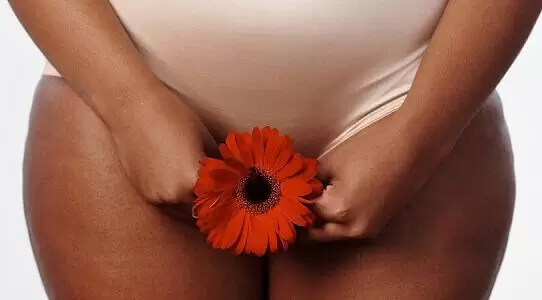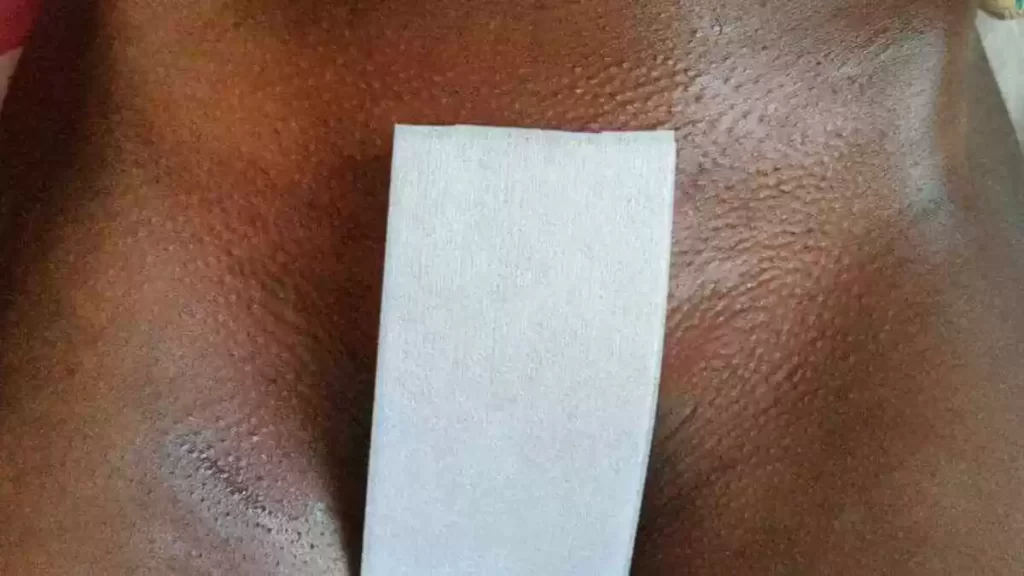
Is it just a fad trend? While the purpose of a vajacial is to minimize ingrown hair, keep the pubic area nicely exfoliated and smooth, the big question is when should you do it, or not do it all.
Quite a number of my (potential) clients have (lots of) questions about vajacial. I am a trained and certified esthetician and I have been through a vajacial demo.
Hopefully, what I share in this post will help you form your opinion about this recent and trending spa treatment.
On this page
What is vajacial?
A vajacial (or vagacial) is a spa treatment, typically 50 min, on the area around the vagina. It does not deal with the inter vagina, but the bikini line and outer labia.
It is usually a follow-up treatment to help deal with the side effects of hair removal on the pubic zone.
The treatment includes cleansing, exfoliation, extraction of ingrown, masking and ends with a brightening serum or a spot treatment.
Types of vajacial
It’s good to be aware of the type of vajacial being performed and the type of products used. There are different types of vajacial depending on your skin condition.
The therapist should assess your skin to match the correct product to your specific skin issue. Some of the vagacial treatments include:
- “Bare Bottom Bikini Facial”; treats problematic skin issues on the gluteal area
- “Brightening Bikini Facial”; addresses hyperpigmentation & ingrown hairs
- “Calming Bikini Facial”; post-wax treatment to reduce inflammation and redness
- “Inflammation Bikini Facial”; calms irritated skin with soothing properties
- “Microderm Bikini Facial”; resurfaces and reduces unsightly bumps and pigmentation
- “Salicylic Bikini Facial”; addresses acne in the bikini area
- “Lighten Up Bikini Facial”; evens out dark spots or scarring in the bikini area
When to do vajacial
Exfoliating over freshly waxed skin creates friction and inflammation over existing irritation.
Therefore, I only recommend getting a vajacial 7 days post-shaving or post-wax.
Is vajacial necessary?
The goal of a vajacial is to treat ingrown hairs, remove dead skin cells, smoothen bumps around the bikini line, prevent acne, and help with hyperpigmentation, all to maintain healthy and hydrated skin in the pubic zone.
From my own personal experience and my clients, the goal of a vajacial can be achieved with a consistent wax regime and proper after-wax care. Here is how;


- Wax
- To avoid hyperpigmentation, it is better to wax instead of shaving or using depilatory creams.
- Be consistent with your waxing appointments and always keep the area moisturized after the treatment.
- Gently pull out the hair(ingrown). In every appointment, I do remove all the ingrown hairs after hair removal, here is what to do in-between appointments.
- Once the hair emerges above the skin, use sterile tweezers or a needle to gently pull it.
- Try not to pluck it out completely until the area is healed otherwise the skin will heal over the hair again.
- Don’t dig into your skin. Breaking through your skin could cause an infection.
- Exfoliate to remove the dead skin, gently wash and exfoliate around the ingrown hair to help the hair return to the surface of the skin.

Exfoliation should be done anytime before a wax or at least 3 days after waxing.
Home remedies to consider for a healthy pubic zone
- Tea tree oil; kills bacteria and brings down swelling. It’s sometimes used to treat acne, and it may also work for ingrown hairs. Dilute the oil with water and apply using a cotton ball.
- Sugar is a natural exfoliator. Mix it with olive oil or honey to moisturize the skin and kill bacteria. Apply the paste in a circular motion and then rinse with warm water.
- Lemon and turmeric can help in brightening the skin.
- Baking soda helps to exfoliate and bring down inflammation in the skin. Mix 1 tablespoon of baking soda with 1 cup of water. Use a cotton ball to apply it to your skin, and then rinse with cold water.
The gynecologist’s opinion
I do not recommend vajacials. They are not medically necessary and women should not feel like they need to get them done. In fact, they may potentially do more harm than good.
My gynecologist
My gynecologist offers the following medical reasons for not indulging in this latest spa menu item.
- Beauty therapists & estheticians may not be knowledgeable about vulvar skin and hormones.
- Most therapists performing vajacials are not trained in vulvar skin and how it is affected by hormones. Vulvar skin is much thinner and more sensitive than the skin on our face. For example, vulvar skin thins out as we approach, experience, and conclude menopause. If an esthetician is doing rigorous vulva exfoliation, they can cause harm to a menopausal woman’s skin, even causing abrasions.
- I strongly suggest that if you do choose to get a vajacial, ask the beauty therapist about their knowledge of hormones and vulvar skin tissue.
- Vajacials put you at a heightened risk for infection. It can be difficult to determine if a spa or salon is taking necessary health precautions by not reusing tools. Any place offering vajacials should feel like a doctor’s office, complete with a disposal bin for sharp tools like needles or lancets used for extractions.
- If you decide to get a vajacial, ask the practitioner where the sharps’ disposal is located.
- Not re-using tools is critical, as it helps prevent infection. However, even if the spa is abiding by this practice, vajacials always leave you prone to infection.
- As estheticians unroof blackheads or pop whiteheads on the vulva, these areas are now set up for vulvar infection. If someone with open vulvar wound proceeds to have sex, they also put themselves at risk for contracting sexually transmitted diseases.
- Vajacials can cause irritation or inflammation. If a vajacial includes the use of lightening or whitening creams, these can be an irritant to the vulva. “The vulva is very prone to allergic reactions from such products because it’s not as tough as the skin on our face, which leaves it more susceptible to contact dermatitis – skin rash caused by irritants.
Closing Remarks

Have you formed your opinion yet? Let me hear your thoughts and question in my email.
We do not offer vajacial treatments but if you would like to make a waxing appointment, do so now.
Last Updated on December 18, 2022
